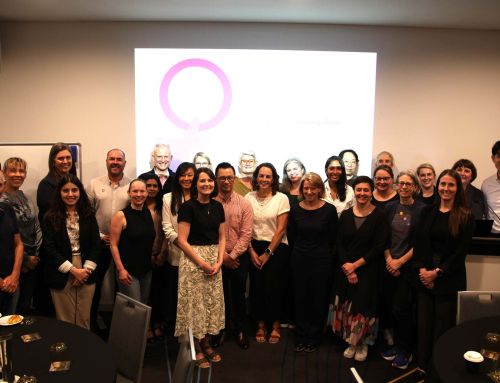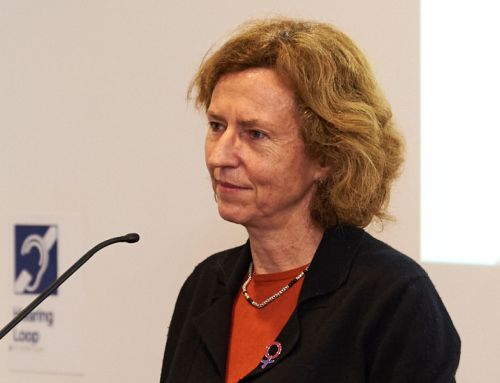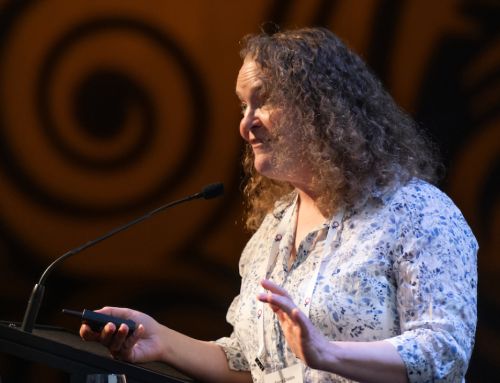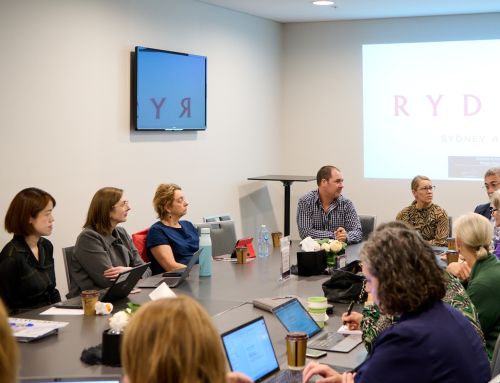Associate Professor Nikola Bowden, a Translational Cancer Researcher and member of ANZGOG’s Ovarian Tumour Type Working Group, tells us a little about herself and speaks about her own research and how she contributes to ANZGOG’s research.
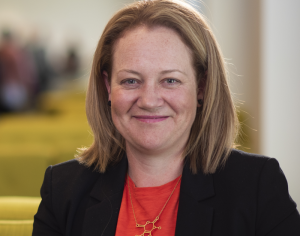
Assoc Prof Nikola Bowden
Assoc Prof Nikola Bowden is co-Director of the University of Newcastle Centre for Drug Repurposing and Medicines Research and leads the DNA Repair Group.
Her research has the overall aim of delivering personalised diagnosis and treatment to patients with cancer, with a more focused interest in investigating DNA repair and drug repurposing for melanoma and ovarian cancer.
Why did you pursue a career as a researcher and what type of research are you involved in at the moment?
I have always loved problem-solving and all areas of science but growing up in rural NSW I did not know research was even a career option. It was only when I started doing summer volunteer work in labs while I was studying at University that I decided the problem solving involved in research was what I wanted to pursue.
My research at the moment is focused on repurposing existing drugs for treatment resistant cancer. I have worked on drug repurposing in melanoma for many years and have moved all of that area of my research into clinical trials in collaboration with the Pharma industry. I started to work on the same approach for ovarian cancer 5 years ago and now lead the Australian Program for Drug Repurposing for Treatment Resistant Ovarian Cancer.
How does your speciality contribute to ANZGOG research projects?
I have recently joined the Ovarian Tumour Type Working Group and will contribute my expertise in treatment-resistance, drug repurposing and investigator-initiated clinical trials. My research career has covered many different fields including neuroscience, genomics, cell biology, pharmacology and clinical trials. My PhD focused on schizophrenia and as a post-doc I worked on multiple sclerosis, immunodeficiency disorders and paediatric oncology. I hope that my broad background helps to bring a new perspective and insight to ANZGOG projects.
“I think the next 5 years will focus on treating cancer as part of the whole patient – not just targeting the cancer itself.”
What do you think will be the biggest change in cancer research over the next 5 years?
I think the next 5 years will focus on treating cancer as part of the whole patient – not just targeting the cancer itself. The interaction between cancer and the immune system, is just the start of what we can use for cancer treatment. We are moving towards cancer being a chronic illness that patients can live long and happy lives with, rather than a disease we aggressively treat to cure.
How and when did you first get involved with ANZGOG? What does being a member of ANZGOG mean to you?
I attended the ANZGOG annual meeting to participate in the first Pure Science symposium. Every year since I have really enjoyed getting to know the ANZGOG community and listening to the broad areas of interest at the meeting. I am particularly interested in consumer advocacy and ANZGOG has an amazing level of consumer involvement.
Your favourite place in the world?
Even though things are very unsettled in the USA at the moment, Washington DC is still my favourite city. I lived there during my post-doc years and always find something new to explore whenever I visit. I hope to be able to return again one day.
A role model that had a significant influence on you in your life?
I was fortunate enough to meet Prof Jim Cleaver from the University of California, in San Francisco many years ago. His life’s work focuses on inherited childhood skin cancer diseases caused by mutations in DNA repair genes. His willingness to support my early career and his passion for the patients who had the diseases he worked so hard to understand has hugely influenced the way I conduct research.
How will women benefit from the research you’ve been involved with?
I am really hopeful that by focusing on repurposing existing drugs rather than trying to find new drugs for ovarian cancer that we will have new treatment options available much, much quicker. Any incremental change we can make to improve the complications associated with current treatments, delay disease recurrence or increase survival times and rates is our goal. I hope that by engaging with our research women feel empowered to tell us what they want from research too.
If you’re an ANZGOG Member, fundraiser, supporter, or cancer survivor; if you’d like to share your story with ANZGOG, please get in touch with hnesfield@anzgog.org.au.

